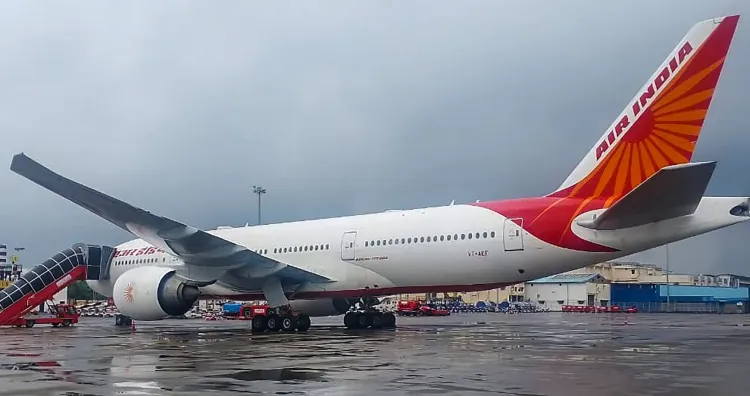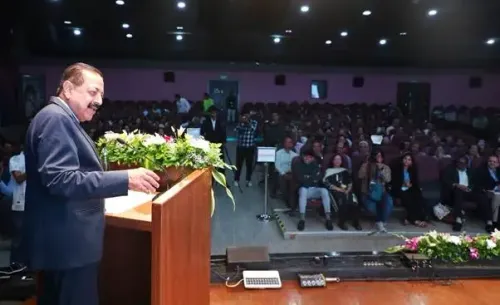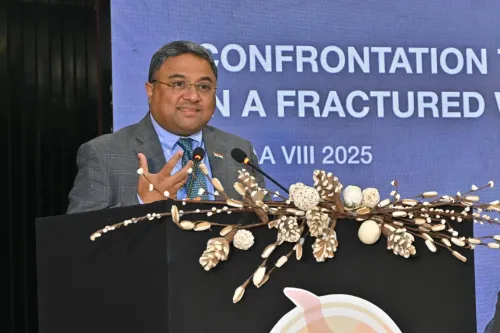Did 95% of Families from AI 171 Crash Receive Interim Compensation?

Synopsis
Key Takeaways
- Ninety-five per cent of affected families have received interim compensation.
- Emergency training facilities have been established in Gurugram.
- Commitment to crew mental health is a priority for Air India.
- Ongoing support for families affected by the AI 171 crash.
- Ex gratia payments are being distributed to families.
New Delhi, Nov 24 (NationPress) Ninety-five per cent of the families affected by the tragic crash of the 171 Dreamliner shortly after takeoff in Ahmedabad have received interim compensation, as stated by Air India CEO Campbell Wilson on Monday.
Air India Flight 171 was traveling from Ahmedabad Airport in Gujarat to London Gatwick Airport in the UK when it tragically crashed just 32 seconds post-takeoff on June 12. Out of the 12 crew members and 229 passengers aboard, only one passenger managed to survive. Additionally, the accident claimed the lives of 19 individuals on the ground, with 67 others suffering serious injuries.
“We remain committed to supporting those who were impacted. Ninety-five per cent of families have received their interim compensation,” Wilson informed reporters at the Air India Training Academy in Gurugram.
“Approximately 70 families have also received ex gratia payments from the AI 171 memorial trust, with another 50 families currently in the payout process. We continue to reach out to the families affected, both as Air India and Tata Sons, to provide the necessary support and assistance,” he added.
“As previously stated, our commitment to those who have suffered a loss, whether on the ground or in the air, will persist for as long as necessary,” the CEO affirmed.
Wilson emphasized that the compensation process adheres to a fair and well-managed protocol.
He also noted a decline in booking rates during the initial months following the catastrophic event, influenced by extraordinary external factors, including crises in the Middle East. However, he reassured that business has since rebounded and that booking volumes have returned to normal levels.
Furthermore, he addressed the company's initiatives focused on the mental health of crew members, including pilots, both before and after the incident.
“The mental well-being of all staff, particularly the crew, has been a priority since privatization. We have implemented various initiatives over the years, including having professional psychologists on staff, offering confidential third-party access to psychologists, and establishing a buddy program for peer support,” Wilson told IANS.
“We conduct regular testing and assessments during the induction and progression process. This remains a crucial focus for the industry as we strive to enhance mental health support,” he added.
Additionally, the CEO highlighted the array of training courses available to ensure the crew can effectively communicate and cater to passengers, regardless of their specific needs regarding food and beverages.
The company has also invested in a state-of-the-art facility in Gurugram—the first of its kind in the country—dedicated to training its cabin crew and pilots. This facility equips them with the skills needed to manage turbulence, fires, and other emergency situations, including pilot incapacitation.
“Investing in training facilities is critical for an airline, as many may not fully appreciate its significance,” Wilson stated.
“It serves to instill professional standards and behaviors while fostering a culture that allows crew members operating at 36,000 feet to interact and engage. We deemed it essential to invest in a facility that demonstrates our commitment to developing a world-class airline,” he concluded.









